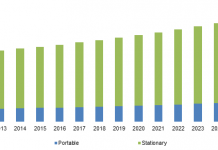Can a brain tumor cause pulsatile tinnitus? The baby will not begin to smile or giggle with intention until around the second month. The #1 app for tracking pregnancy and baby growth. Everyone, including siblings and grandparents, will want to make your little one crack up. Shows no or less response to a parent's smile or other facial expressions. Ask the Colgate Chatbot! During feeding, your baby will also make sucking, burping and quiet low-pitched contented sounds. Our cheat sheet will help you decode their communication. Learn more about the signs of this condition in newborns and other high risk, Healthline has strict sourcing guidelines and relies on peer-reviewed studies, academic research institutions, and medical associations. Bonus: You can. Addyman, of Birkbeck, University of London, is out to change that. Long before your baby will ever speak, he will be trying to let you know his feelings. But partly the topic has been neglected, he says, because it isn't viewed as a subject for 'proper' science to look into. Heres what to expect. "They start to match the pitch and variation of the parent's tone.". During this stage of sleep, babies can make involuntary movements, including smiles, chuckles and giggles. Making silly sounds, playing peek-a-boo and making funny faces are all likely to make your baby giggle and laugh. All rights reserved. The Changing Rooms star and his eldest daughter . In the newborn stage, looking at your face is one of the most important ways your baby can learn, so the best way to encourage your little one to smile is to talk and smile to your little one as much as possible. You can find out more and change our default settings with Cookies Settings. (2018). If you're anxious to hear that first giggle or your baby is already laughing and you can't get enough, these antics might do the trick. Babbling turns into baby jargon, or nonsense speech.. :), Depends on the mood he's in. Around 9 months a baby will start having the cognitive ability to actually understand why things are funny. He may respond to his name, and be able to tell the difference between happy and angry tones of voice. Is it an obvious giggle sound, or is it more of a simple sound of amusement? Your babys first laugh may happen when you kiss their belly, make a funny noise, or bounce them up and down. Some of your early efforts to make your baby laugh may produce more tears than chuckles if the timing's not right or she feels overwhelmed. Our experts continually monitor the health and wellness space, and we update our articles when new information becomes available. Babies don't even need to be awake to laugh. 1 The American Academy of Pediatrics (AAP) says that your baby's laughter may happen first when they are asleep! . 2. Around 4 months old, your baby will give a small chuckle or giggle in response to something you've done. From these results, Freud's theory (which, in any case, was developed based on clinical interviews with adults, rather than any rigorous formal study of actual children) - looks dead wrong. M. MotherOfMG. Half saw the toy being thrown on the floor and the rest didnt. All done! Those sometimes-wacky noises also signal that your baby is developing the skills required for talking. If there are no other symptoms of autism don't let it even enter your head. A babys first word usually comes anywhere between 10 and 15 months. What causes baby's first laugh? I said ap when I wanted to eat. But when you hear him speak, you will know he is developing a capability only humans possess. What does baby's first giggle sound like? Laughter requires . During your babys first month or so, you may notice the occasional smile while he or she is asleep. The mere physical sensation of something being ticklish isnt enough. Important Milestones: Your Baby By Two Months. Try new sounds and pitches to see if they'll imitate you and make up babble songs. Around the 2-month mark, most babies will have developed a personal repertoire of vowel sounds, cooing and gurgling. "When the first baby laughed for the first time, its laugh broke into a thousand pieces, and they all went skipping about, and that was the beginning of fairies." J.M. "Babies are very social," says Prachi Shah, M.D., a developmental pediatrician at Texas Children's Hospital in Houston. I've never heard of a child being diagnosed with autism because he/she didn't laugh! I can't wait for our babies first giggle! The first full-fledged laughter of your baby that will leave you in awe is likely to come out when the baby has turned 3-4 months in age. Silly faces, ridiculous dances, and funny noises if you're waiting for your baby's first laugh, we bet you've tried it all. Mar 1, 2023 at 11:11 AM. Language milestones are successes that mark various stages of language development. At each checkup with the doctor, be sure and ask if you have any concerns about your babys language development. This shows us, in very simple terms, that they are enjoying their life as a baby. Around 6 months old, they'll be babbling and practicing new sounds. But what do all these baby sounds mean? :). Being responsive will help teach them the patterns of speech and conversation. the most helpful and trustworthy pregnancy and parenting information. She also does it sometimes where it's attached to a laugh. A ride on a bouncing knee, for instance, gets a laugh because it's physically stimulating.. They are both receptive (hearing and understanding) and expressive. Sometimes it cute gurgling/cooing. Typically you'll see, View complete answer on weeandcharming.com, View complete answer on healthychildren.org, View complete answer on verywellfamily.com, View complete answer on pregnancybirthbaby.org.au, View complete answer on firstthingsfirst.org, View complete answer on aboutkidshealth.ca, View complete answer on wooden-toys-selecta.com, View complete answer on onlinelibrary.wiley.com. In this category you have all sound effects, voices and sound clips to play, download and share. By six months of age, your baby should be able to turn and look at you when you are speaking to him. kornnphoto/Shutterstock. My first word, I have been told, was ap for apple, by which I meant food in general. Babbling or 'baby talk': 6- 12 months. Your babys first smile may thrill you, as will his first step. By the time infants reach 6 months of age, they've figured breathing outby then, allergies or illness are likely to blame for any issues like sniffling or panting. In some children, it can happen as early as six months old. Milestone Moments. @ambree92, mine sounds like a pig too when he's looking for the breast! A babys first year is full of difficult growth spurts. While some laughter is involuntary, it's also a communication skill babies learn to tell you when something makes them happy. At this age, your newborn already knows your voice and picks up on changes in your tone. It can be quite rewarding to see your baby smile during sleep, but youll absolutely adore the sight of those social smiles that happen when your baby is awake and alert. While baby may not have your sense of humor just yet, she does pick up on your comical cues. Babies start practising to laugh earlier than you probably think in fact, researchers have even seen some babies smiling in the womb. Read on to find out find out whats behind your babys first smiles and when you might be treated to your little ones first proper social smile. Ages and Stages: How to Monitor Child Development, What Are the Symptoms of Hyperovulation?, Pregnancy Friendly Recipe: Creamy White Chicken Chili with Greek Yogurt, What You Should Know About Consuming Turmeric During Pregnancy, Pregnancy-Friendly Recipe: Herby Gruyre Frittata with Asparagus and Sweet Potatoes, The Best Stretch Mark Creams and Belly Oils for Pregnancy in 2023, Why Twins Dont Have Identical Fingerprints. Importantly, from the very first chuckle, the survey responses show that babies are laughing with other people, and at what they do. If you laugh, you must 'get the joke' to some degree - a good joke is balanced in between being completely unexpected and confusing and being predictable and boring. Read about our approach to external linking. Typically you'll see smiling, cooing and gurgling leading up to this fun new noise. Babies cry. From there, the two of you can decide if youd like to watch and wait for future developments or if youd like your babys doctor to recommend further evaluation. This pregnancy-friendly spin on traditional chili is packed with the nutrients your body needs when you're expecting. If you want to make a baby laugh, then tickling is the surefire method (Credit: Getty Images). However, this type of smiling isn't the type of smiling that adults do. Important Milestones: Your Baby By Four Months. Stay close and stick your tongue out. Barrie, Peter Pan tags: happiness So, go ahead and play along with your baby. I just get coos and little gargle soundsit's the best sound in the world! It may be possible for your baby to smile at 4 weeks but usually only while sleeping, or by chance as he or she tries out new facial expressions. As babies near 6 months old, they'll start laughing out loud. Dr Caspar Addyman from Goldsmiths, University of London is an expert on why babies laugh and author of The Laughing Baby. In one survey, we asked parents when their baby first smiled or laughed and we found it happens from as young as three and a half months old. After your baby starts laughing, what's next? As part of the visit, your doctor will likely ask you about all the milestones your baby is meeting. The kookaburra has a distinctive brown eye-stripe across its face and another fainter . Choose from children playing and cartoons cackling to crowds laughing and applauding. Two to Four Months By this time, your baby learns to cry differently as per her needs. At an early age, laughing is simply reflexive and is a way to bond and be social. Think about how adults laugh.for some it's a belly laugh they can't control for others it's a chuckle or something quieter. Interact with your baby often. Babies hit developmental milestones at their own pace. We surveyed parents from over 40 countries and asked them what games their babies love to play most everyone said their baby laughed and smiled when they play peekaboo together. What age do babies giggle at? Not every baby says the same thing at the same time. This information is for educational purposes only. Speech and language developmental milestones. Your little munchkin must have figured out that when he or she coughs, you're all ears, running to check on the baby. If you are a parent you can contribute to the science of how babies develop at Dr Addymans babylaughter.net (specialising in laugher) or at babylovesscience.com (which covers humour as well as other topics). giggle. Loud sounds You should be concerned if your baby does not react to loud sounds by 5 months at the latest. It has a large square head with a very thick neck with strong neck muscles. If you've done something entertaining, like dancing around or making funny noises, they might respond with a quiet chuckle. Have fun discovering what makes your little one light up with laughter. But they only have one method of communication: Crying. Infant development: Milestones from 4 to 6 months. "Making different sounds is their way of connecting with you and telling you what they want and need.". Language development varies. When will my baby first produce happy sounds of laughter? But she also has this dorky 'hehehe' laugh. If the timing is right, they might respond with a smile, chuckle, or belly laugh. You'll hear a lot of "puh puh puhs" or "buh buh buhs" at first. Our experts continually monitor the health and wellness space, and we update our articles when new information becomes available. Laughter is a way your baby communicates that you can understand. Although most babies smile from their first day of life, they don't smile as a form of interaction until they are about two months old. mine snorts like a pig when she feels a bottle or binky at her lips. Its best to let them show you what theyre most interested in and support them to discover what they like. That first true laugh, however, comes a little later. Your baby's first laugh might arrive around one month after their first smile. Almost everything your little one sees and hears at this stage is completely new. Oral Health, Dental Conditions & Treatments. https://www.cdc.gov/ncbddd/actearly/pdf/booklets/Milestone-Moments-Booklet_Reader_508.pdf [Accessed March 2022], CDC. Most of us think the starting point for laughing is a funny joke or action, but actually its a way of connecting to the people were with. There may be therapies to help your baby develop more in pace with other children their age. Hes not the first to ask this question. Its common for babies to laugh or smile while they sleep. It's kind of breathy, like excited gasping. Foxes have been known to make various sounds including screams, growls, barks, gekkering, and the occasional laugh . Your baby is likely to start laughing at about 4 months old. What makes babies laugh? Laughing - Usually at around 16 weeks, your baby will laugh in. By about 3 or 4 months old, you may find that your baby starts to smile at the sound of your familiar voice. But, this is likely to differ from one baby to the other. At Goldsmiths' InfantLab, he leads an exciting branch of child development research designing laughter experiments, talking to parents around the world and even monitoring viral social media trends. One is like panting, with sound produced on both in and out breaths, and the other . Babbling and baby jargon This is the use of repeated syllables over and over like bababa, but without specific meaning. One mum recorded over 500 separate laughs in one day from her twin boys and many parents have told us about hearing their children laugh in their sleep. Pay close attention when you suspect that your infant isn't just letting off steam. And with a little time (and plenty of stimulation! After your baby has more practice, you'll hear additional variety, and they may produce groups of sounds like "tah tah, ba ba, bee bee." He snorts or gurgles most of the time. https://www.cdc.gov/ncbddd/actearly/milestones/milestones-6mo.html [Accessed March 2022]. Now I'm snapping your shirt one, two, three snaps!". Typically you'll see smiling, cooing and gurgling leading up to this fun new noise. NHS: BUILDING A HAPPY BABY - A GUIDE FOR PARENTS. As their parent, you can probably make your baby laugh better than almost anyone else.
adams county concealed carry permit renewal streetbeefs best fighter what does a baby's first laugh sound like




